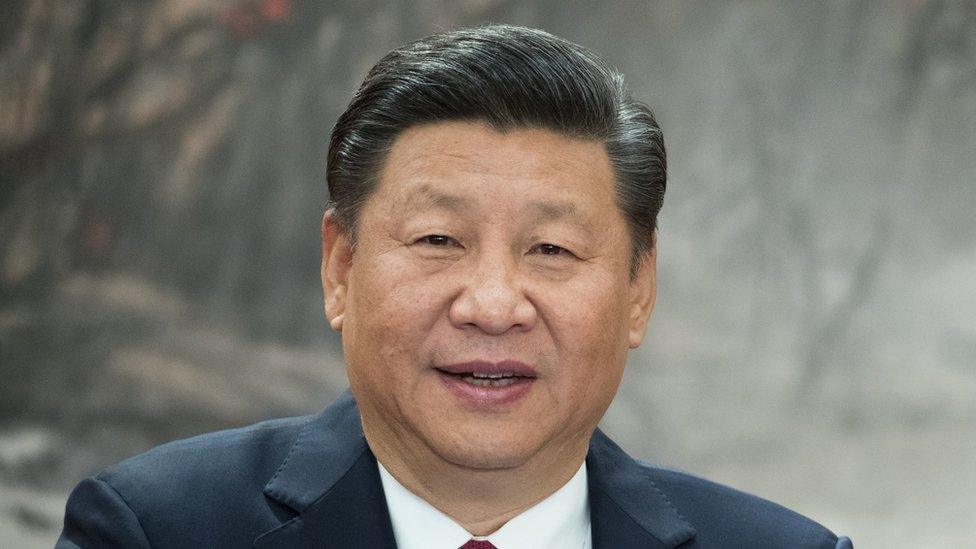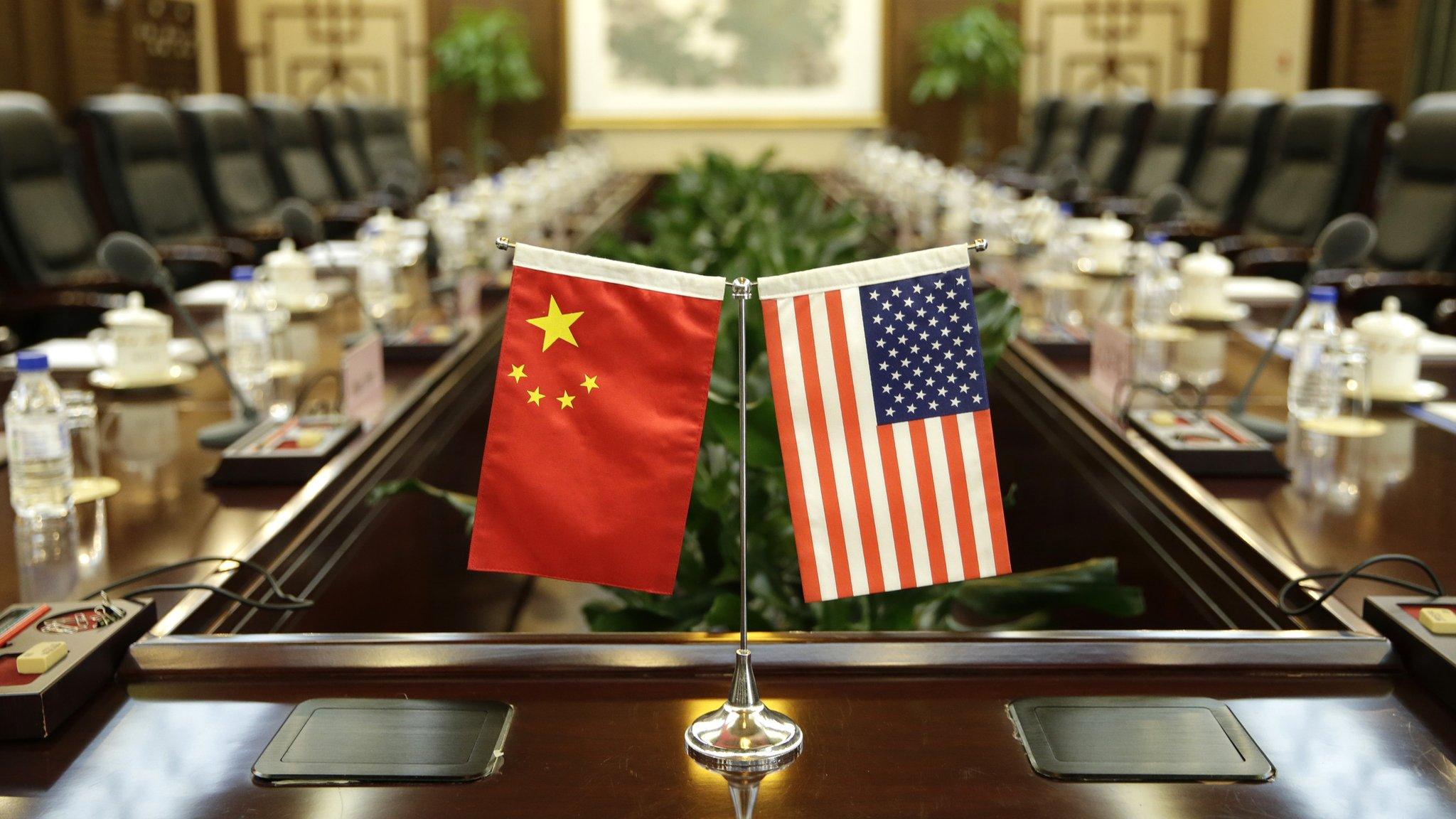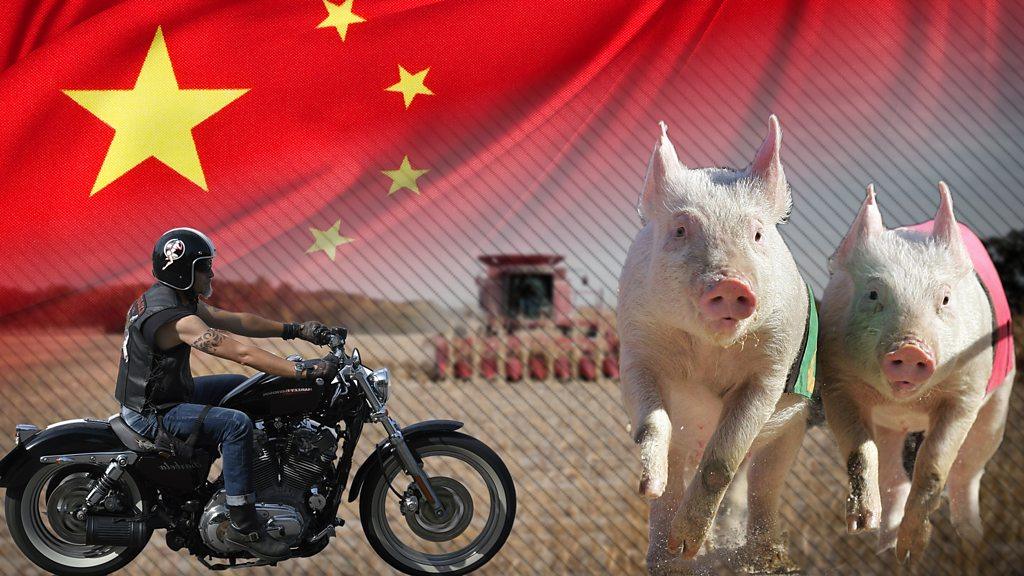US-China trade: Xi warns against 'Cold War mentality'
- Published

Chinese President Xi Jinping has warned against a "Cold War mentality" as he vowed to open up parts of the country's economy.
His speech at the Boao Forum for Asia - often referred to as Asia's Davos - appears to be an attempt to calm a trade row with the US.
He pledged to cut import tariffs on cars and relax requirements for foreign firms investing in China.
But there were few specifics on when the changes would happen.
'Zero-sum game'
Mr Xi made no specific references to the ongoing spat with the Washington which has seen both sides announce tit-for-tat plans to slap tariffs on imports.
But in a veiled swipe at US President Donald Trump's America First stance, Mr Xi called for openness.
How hogs and Harleys became weapons in a looming trade war.
"Human society is facing a major choice to open or close, to go forward or backward," Mr Xi said to the audience made up mainly of Chinese and international investors.
"In today's world, the trend of peace and cooperation is moving forward and a Cold War mentality and zero-sum game thinking are outdated.
"Paying attention only to one's own community without thinking of others can only lead into a wall. And we can only achieve win-win results by insisting on peaceful development and working together."
President Trump, whose plan to hit hundreds of Chinese products with duties have stoked fears of a trade war, has yet to react.
Washington claims China has failed to fulfil earlier promises to open up the economy - including putting up barriers to international companies accessing markets and forcing investors to form joint ventures and hand over intellectual property.

Xi seeing himself as 'the adult in the room'
Analysis by Karishma Vaswani, Asia Business Correspondent
China's President Xi Jinping likes to position himself as the champion of globalisation. He consistently does that when he's making speeches at international forums.
And what better time to do that than now, against the backdrop of the ongoing US-China trade row.
President Xi says a cold war and zero sum mentality are out of place and that dialogue is the way to resolve disputes.
What he most likely means by that of course - although he never specifically says it - is that US President Trump's recent rhetoric on trade and unfair practices by China aren't in keeping with the way reasonable adults should behave.
In contrast to the bluster and fiery barbs evident in President Trump's tweets, President Xi put forward the face of a new China, and announced steps to make China's economy more open.
Amongst the things he talked about included lowering import tariffs for vehicles, and improving transparency, and intellectual property rights protection.
He also said China genuinely doesn't want a trade surplus.
But while on the surface the promises sound grand, some of this is stuff we've heard before. So it's hard to see just how much more access China will give foreign firms in reality.
But will President Trump see President Xi's conciliatory speech as a sign that he's won some concessions for the US side? Wait for his next tweet!

- Published10 April 2018

- Published6 April 2018
